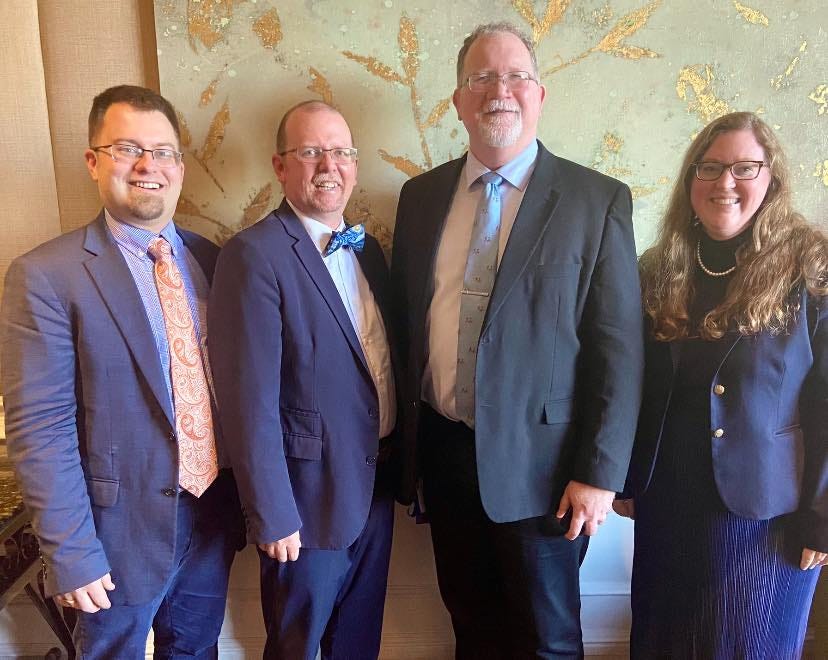On Commonplacing
. . . every party over-estimates its own numbers.
George Orwell, Homage to Catalonia, introduction by Lionel Trilling (New York: Harcourt, Brace, and World, Inc., 1952), pp. 60n1.
Great Ideas: Citizen, Government, Man, Quantity, Revolution
I don’t get too political on this Substack by design. It is not that I think politics unimportant; I’m rather Aristotelian on the matter, actually. But I doubt that many people come here hoping to find political guidance from me. So, I write about things of political import without delving directly into the partisan lenses that characterize almost all public discourse in the United States.
But as October comes to an end, and my recent time in Washington, D. C. continues to linger in my mind, I thought I would offer just one observation that is likely to please few people: neither of the two primary political parties here in the U. S. can legitimately claim to represent the majority view. Both actually make this claim on a regular basis, but that is why Orwell’s point is significant. Even though he was specifically describing the Leftist parties in Spain during the Spanish Civil War, his observation easily applies universally in any government where political parties have crafted narratives of “we are the party of the people” in order to win elections. Orwell distrusted numerically driven narratives, and I think everyone would be wise to at least consider a similar skepticism.
On Reading & Researching
I had the great pleasure to visit the Georgetown Library’s archives this month, continuing the edit my dissertation into a monograph that I hope to publish. I read a lot of personal correspondence, as well as business files. When I first started researching for academic writing, I had no idea this is the kind of thing I’d spend time pouring over. But it was a productive time, and I am grateful to the Department of Catholic Studies at Georgetown for allowing me to come spend some time.
I’ve also been reading quite a bit for the Thales College program I’m working with to help train Classical teachers. I’ve gone back through Abolition of Man (always a treat), and I’ve read through James Taylor’s Poetic Knowledge as well as Richard Weaver’s Ideas Have Consequences. I will finish up Genesis, Homer’s Odyssey, and Dante’s Inferno for the Humanities texts class, as well as Russell Kirk’s Enemies of the Permanent Things for the Philosophical Anthropology course.
I’ve got some work ahead on some Classical Education related projects as well, which I hope to share more about soon.
On Writing & Publishing
I have done a lot of writing this month. Probably pushing close to 15,000 words in total. While that breaks down to only 500 words a day, things are never quite that neat, with some days much lower and some much higher. Still, it was a respectable amount of work that I accomplished in October, and I’m grateful. If you factor in job applications, I might be closer to 20,000. The amount of time and energy that goes into completing an academic job application is quite silly. I am absolutely convinced there is a better, more effective way for schools, colleges, and universities to parse out applicants without requiring so much work from them on the front (particularly for a job they are statistically unlikely to even get an interview for). It’s easier when you can do a lot of self-selection, and you’re not desperate. But it is still time-consuming in the extreme. I look forward to the academic hiring window closing soon so I can redirect my attention. Then, of course, it becomes a waiting game.
On Traveling & Speaking
A few months back, my friend Josh Herring had me on his Optimistic Curmudgeon podcast to discuss my posts about books for classical education. It was a fun talk and gave me an opportunity to reflect a bit more on what I had written. The conversation has gotten a bit more attention then I expected, which I hope is a good sign! You can watch the whole thing below:
At the end of September, I attended the Philadelphia Society’s Fall meeting, which was held in McLean, VA. The conference was great, and it was fun to see so many friends. There was a significant contingent of folks from the Ciceronian Society there this time, which led to a huge dinner party that Saturday night. PhillySoc is definitely one of the conferences I don’t want to miss going forward, very similar to my feelings on the annual Ciceronian meeting. Of course, there is only so much time and money in the world. If I stick with the advice from
, then I’ll have to keep doing Philadelphia Society in the Fall and Ciceronian in the Spring.I also attended the ALSCW conference, where I presented a paper on the Inklings and how they used novels to advance their own philosophical views. I’ve got a lot more work to do on this particular project, but I’m very happy with the current direction.
On Listening
There is a pretty good story that accompanies this piece, which you can read in the description. But I’ll just say upfront, who knew Mark Twain could write something so heartfelt?



